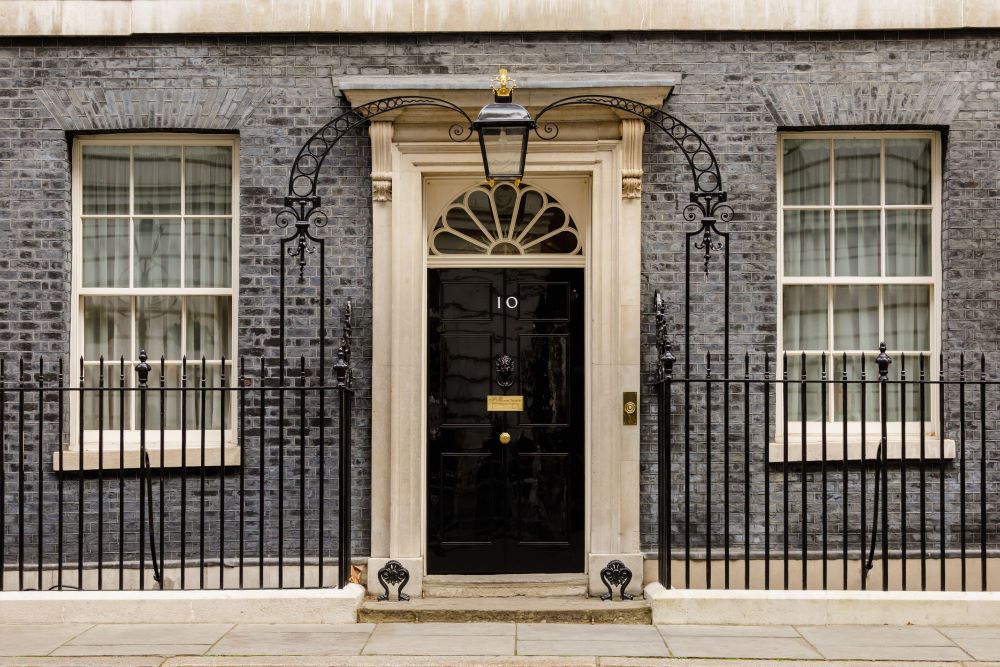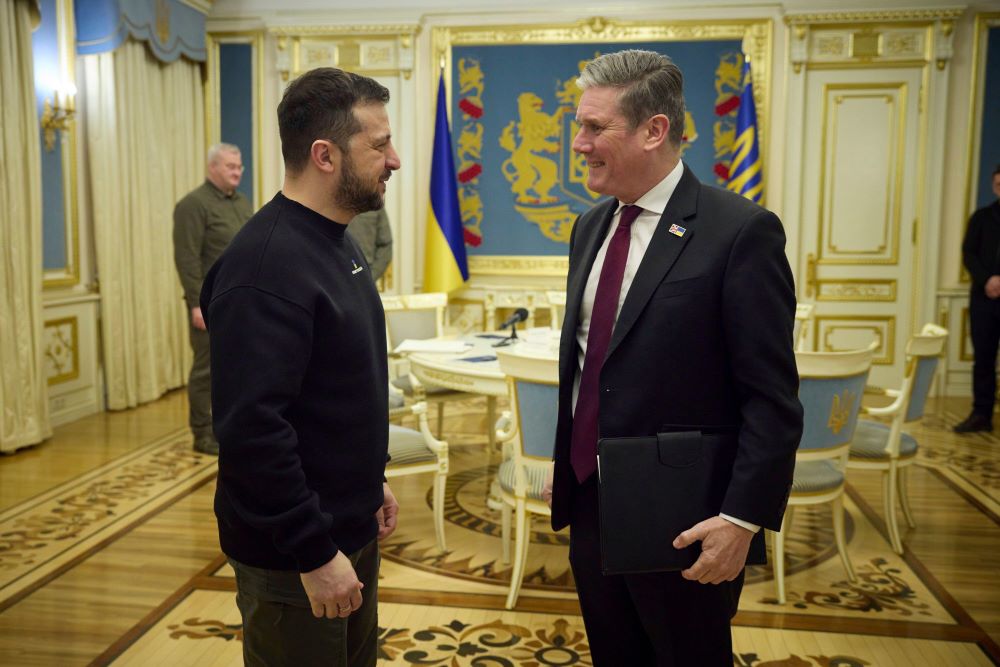What Are The First Jobs Of A New Prime Minister?
Keir Starmer and Rishi Sunak at the BBC's Prime Ministerial Debate in Nottingham last week (Alamy)
6 min read
Unless the opinion polls have got it extraordinarily wrong, Labour leader Keir Starmer will enter No10 on Friday as the new Prime Minister with a majority in the House of Commons — the first Labour leader to win a general election since 2005.
There are a certain number of set-piece moments that come with the changing of a Prime Minister. There are speeches to the nation on Downing Street — one from the outgoing PM and another from their successor — as well as trips to Buckingham Palace by both, to either offer their resignation to the monarch, in this case King Charles II, or be invited to form the next government.
There will inevitably be photographs from the worlds’ press in front of the famous black door, but when the cameras on Downing Street have stopped flashing, what are the jobs at the top of the Prime Minister’s to-do list, in the hours after they secure the big job?
When the door closes
In the moments immediately after their speech on Downing Street, the Prime Minister will be faced with “a bit of ceremony,” Alex Thomas, the Institute for Government’s programme director on the civil service told PoliticsHome’s podcast The Rundown.
Looking ahead to what Starmer could have to do, he said that there will be handshakes with his Principal Private Secretary, as well as the Cabinet Secretary who is the head of the civil service.
After that, “it’s then traditional that Downing Street staff will clap in the Prime Minister,” said Thomas.
“There’s this slightly artificial, but actually quite nice tradition where all the civil servants who work in and around Downing Street welcome the Prime Minister, say ‘congratulations on your election victory’.
“But then the serious business starts.”
"Scary" security briefings and getting to grips with the in-tray
There will be walk-through of a number of protocols from the Cabinet Secretary, according to politics professor and former Labour adviser, Patrick Diamond.
He told PoliticsHome that among the first questions "there’s all of the scary stuff about the nuclear button and who are the people that you would take into the bunker with you if we get attacked by a foreign power".
This means the Prime Minister laying out who it is they would want around them were there to be some form of national emergency.
Fairly quickly, there will be a job that is "very very serious" but also involves "a bit of theatre", the IfG's Thomas said: the writing of the letters of last resort.

"At some point in the first few hours the Prime Minister will sit down and write letters to the commanders of the nuclear submarines to give them instructions as to what happens if, god forbid, the UK gets wiped out by some nuclear attack," he said.
"There’s a serious point to that clearly, a very very serious point. But there’s also a bit of theatre to it.
"Right you are the Prime Minister now, this is a serious business, this is big stuff."
Certain urgent matters of policy are also likely to be dealt with fairly quickly. Thomas predicted that there would be meetings held within hours of the Downing Street speech to confront “all the impossible policy issues that have been piling up over the course of the campaign”.
This time around, he said, “I suspect prisons and public sector pay and things like that will feature quite heavily in those day one briefings.”
A report from the IfG on Wednesday warned that "prisons in England and Wales are just days from running out of cells", a crisis that presents "obvious risks to the public".
It said that there are a number of changes that an incoming government could make to help free up prisons space, including allowing sentences of up to three years — rather than the current two — to be suspended, and reducing or removing supervision after release for offenders who serve sentences under 12 months.
Appointing the Cabinet
The new Prime Minister will look to nail down their top team as soon as possible. Diamond expects to see Cabinet appointments beginning as soon as Friday afternoon, with the most senior appointments being confirmed first.
“You would certainly want to get your Chancellor of the Exchequer in place as quickly as possible because you want to reassure the markets that there is a chancellor in the Treasury ready to take over,” he said.
“It will be the same with the Foreign Secretary, you wouldn’t want there to be any vacuum."
The rest of the positions could be confirmed through the weekend, but Diamond said that the expectation would be that all ministerial appointments will have been made by Tuesday, when Parliament is set to return.
Thomas agreed that jobs would likely start to be secured fairly quickly, “within the first few hours” of Starmer being in Downing Street, and “within the first day we’d expect most of the Cabinet to be in place”, meaning that most of the top jobs will be accounted for.
However, it is not always guaranteed that this is a process goes completely to plan, especially if somebody wants a different job to the one that they are offered.
“That might be very smooth and straight forward if it’s just exporting across the shadow cabinet, it might be complicated if somebody digs in," he said.
Phone calls with world leaders
In the midst of all of the security briefings and Cabinet appointments, a new Prime Minister will also be fielding calls from other leaders across the world who are keen to offer their congratulations.
There could even be “a queue” of prime ministers and presidents waiting to talk to him.
The calls “will be managed according to precedence and all the diplomatic protocols,” Thomas said.
But, there are a certain number of figures that calls can almost definitely be expected from.

The list will include “the US President, the President of the European Commission and so on,” Diamond said, and the timings could also be subject to factors such as time difference, but he expects “those calls to be happening pretty much throughout the day”.
Diamond said: “Because obviously the UK, even though it’s outside of the EU, is a relatively large European power there will be a certain premium attached to being the first person to speak to Starmer.
“There will be a queue that will have Macron and Scholz at the front of it and no doubt lots of them will be wanting to talk to Starmer throughout the day.”
Starmer would be expected to with US President Joe Biden, France's Emmanuel Macron, German Chancellor Olaf Scholz, European Commission President Ursula von der Leyen and Ukraine's leader Volodymyr Zelensky among others soon after entering No10.
